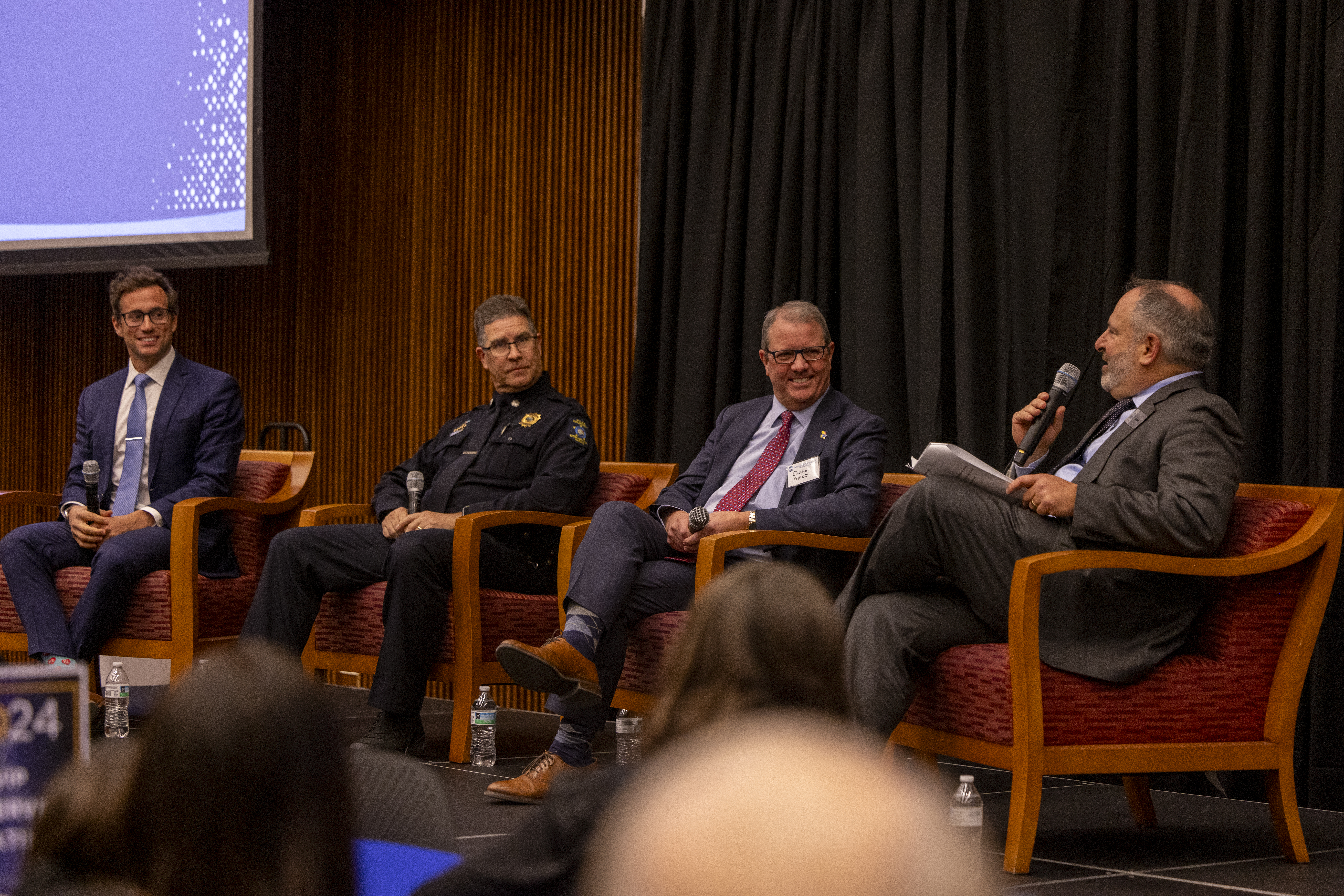Jewish Federation held its annual meeting on Dec. 5, with more than 150 community members attending. Several community members were honored for their community involvement and volunteering. JCRB|AJC Interim Executive Director Neta Meltzer gave a d’var Torah, new Federation board chairs and board members were announced, and the accomplishments of Federation and the Jewish community were celebrated.
The meeting also included a discussion panel on antisemitism and cultivating safe spaces for Jewish students and residents which was moderated by Federation President and CEO Jay Lewis. University of Kansas Chancellor Douglas A. Girod; Kansas City, Missouri, City Manager Brian Platt; and Overland Park Police Department Deputy Chief of Police Simon Happer were featured speakers at this event.
All three speakers stressed the importance of building relationships and forming connections with organizations around the community. Happer brought up having officers do their notes and reports while parked at Jewish and Muslim institutions. That way, he explained, police had visibility on these campuses and a presence there.
“The officers didn’t mind it. In fact, I think they kind of enjoyed it, because [they are] appreciative to you guys, that you came up and thanked the officers,” Happer said. “...It’s the appreciation that we got from you guys that [you said], ‘Hey, thank you’... I did receive a lot of calls from people saying thank you.”
Platt had a similar sentiment to share about the importance of visibility. As a Jew himself, Platt wanted to stress the importance of education and awareness.
“I think we’ve got a lot of well-meaning people in the community in Kansas City and beyond, and they say things or hear things, and they repeat them, and they don’t know,” he said. “They don’t know that this is an antisemitic thing you’re saying. They don’t know the history and the background and the context.”
He went on to mention education efforts for elected officials and public symbols of visibility. Before Platt became city manager, he said, Kansas City had never done a Hanukkah menorah lighting at the city hall. In addition, Kansas City’s city hall was lit up blue and white in honor of Israeli Independence Day. Signs of visibility intermingled with the broader community allows cultures to understand each other and the “why” behind it all, Platt said.
Both Girod and Platt have been on trips to Israel, and Happer had a trip booked for the fall of 2023, but it was cancelled due to the Oct. 7 massacre. Girod went with four other university chancellors and presidents on a trip that aimed to show them Israel’s diverse society.
“I had a chance in 2018 to go to Israel with JCRB|AJC, and we did this incredible program,” Girod said. “They made a tremendous effort to help us understand just the complexity of the challenges and the diversity of thought on the challenges within Israeli society.”
Each of the panelists shared experiences with antisemitism training and hate. Happer discussed a field trip to a Holocaust museum during a class on hate at the FBI national academy.
“It was probably the most moving thing I’ve ever been to in my life. The lady that came and spoke to us was an Auschwitz survivor,” Happer said. “It really made me realize some of the things that you go through that I might take for granted that I don’t have. There’s things that are anti-Catholic, but not like anti-Jewish.”
Platt brought up the Mayors Against Antisemitism conference in Los Angeles. Kansas City, Missouri, Mayor Quinton Lucas and Platt will both be attending the conference this year. Platt said that this conference is one of the most uplifting things he does when it comes to the Jewish community.
“You see these mayors from cities all over the country who are not Jewish, who don’t have necessarily a connection to it, but they’ve got Jewish people in their cities, and they are all arm-in-arm unified with the same message of, ‘we’re going to do whatever it takes to protect the Jewish community,’” Platt said.
Lewis thanked each panelist for their dedication to the Jewish community and for showing up for the community before and after Oct. 7. All three of these leaders assured the annual meeting attendees that the Jewish community was not alone.
“I think there is hope,” Happer said. “I think if we come together as a community, we can show people that we can all stick together, work together and be peaceful together.”



